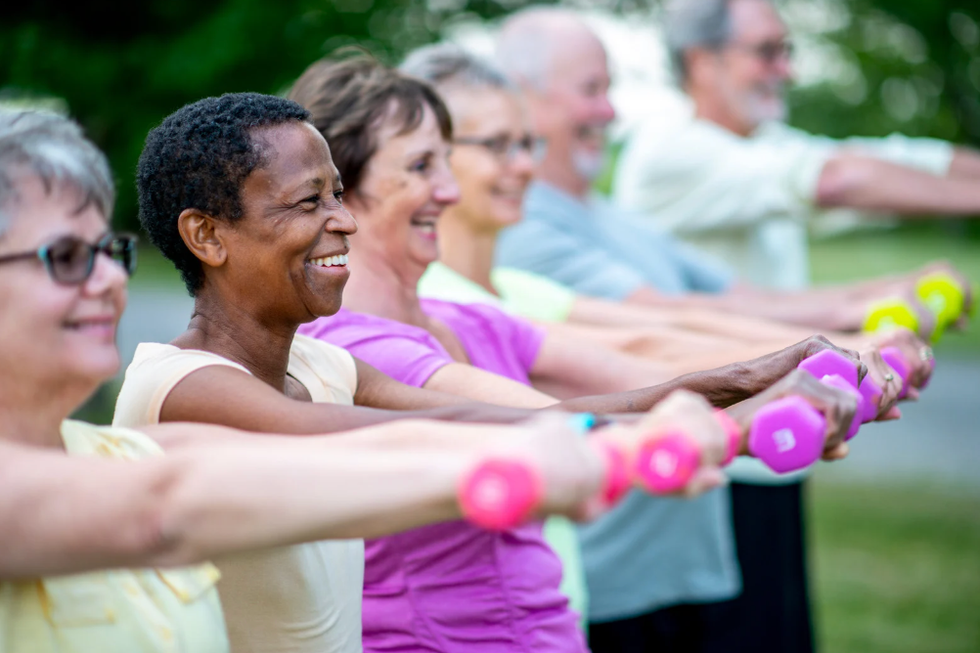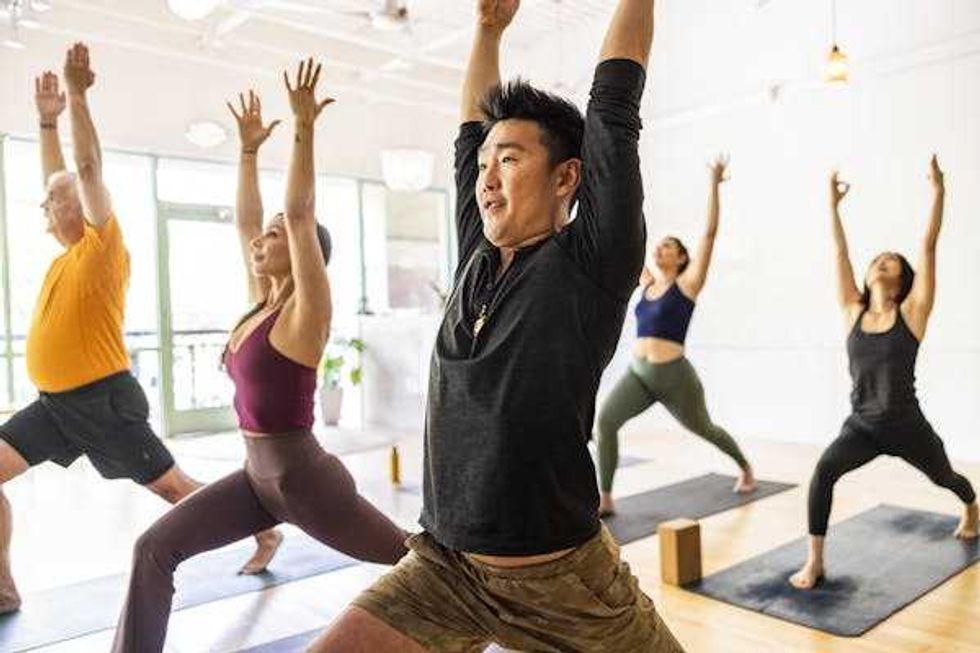There are people out there that just can’t go to the gym, go for a run, or exercise at all without their playlist. Whether it’s just playing their favorite songs on Spotify to get through the next set of bench presses or watching a TV show on their iPad while on the treadmill, many people believe that having such distractions just makes it all go faster than if they exercised without it. You might be one of those people, and, according to science, you’re actually right. Sort of.
A study is showing the people who do intense workouts without headphones or other distractions actually experience time much slower during their exercise than people who incorporate entertainment or competition in with their workout session. For the research, 33 physically active people went on three different cycling trials on an exercise bike. The first trial was a solo biking session without distractions, the second trial was with a virtual avatar on the bike’s screen, and the third session was a game in which they needed to race a virtual opponent. Before, during, and after each trial, they were asked to estimate a 30 second time period.
The results showed across all three trials that the participants didn’t showcase any differences in perception of time before and after the exercise, but showed disparity during the cycling workouts. All three trials had the participants experience slowness in their perceptions of time and didn’t show much of a difference regarding whether there was a virtual element or not. The warped perception was credited not to cycling itself, but to how focused the individuals were on the task at hand along with the discomfort that comes with strenuous training.
“Exercise, particularly hard exercise, increases focus on the body, creating a heightened awareness of each moment,” said Andrew Edwards, first author of the study and a professor of psychology at Canterbury Christ Church University. “That makes time feel like it’s dragging.”
You know the old phrase “time flies when you’re having fun”? It’s like that but in reverse. Since the body is experiencing discomfort, even pain in some cases, it’s perceiving each moment much longer than in reality. If the activity isn’t fun, it’s…well, it’s not fun. So it feels slow.
@laurenclarke132 Songs that get you FLYINGGG !!!! & it feels glorious 🌞🌞🌞☘️ #runtok #running #runningmotivation #runcommunity
Edwards even followed this study up with an additional one studying professional soccer players and their training habits. Unsurprisingly, the results found that the players enjoyed the workouts that involved them playing soccer and drills with their teammates, finding those activities much shorter and quicker than watching game film for analysis or cardio training.
“If time feels slower, workouts may feel longer and less enjoyable. Making exercise more engaging could help people stick with it,” Edwards said to The Guardian. “Repetitive or unenjoyable exercise might enhance this time-slowing effect, while distractions or enjoyment might reduce it.”
So, what can you do when your workout just drags and drags? Well, as mentioned above, music through some headphones or watching a show on a tablet can help make cardio workouts on the treadmill or elliptical go by much faster and easier. If you’re lifting weights, music can help, but doing it with a friend will not only give you a spot for heavier lifts, but make it a more fun experience. Just make sure you’re still aware of your surroundings and don't get too distracted if you’re running on the streets outside or are in a crowded gym.

When it comes to chores like sweeping and washing dishes, listening to music or podcasts can help pass the time. Folding laundry and other menial tasks like that can be done while the TV plays in the background, too. If you’re doing an elaborate project, invite your friends over for a “chore hang” to keep you company while you commit to your task or errand.
@yasminezachmeyer this is my new favorite song to listen to while doing house chores 😂 #homemaker #homemakertiktok #goodhousekeeping #christianwife #householdchores
Just know that exercise and many other parts of life can feel like a boring eternity, but there are plenty of opportunities and people out there to help make the time fly by.


















 Regular exercise and a balanced diet are cornerstones to aging well.
Regular exercise and a balanced diet are cornerstones to aging well.


 Oral Wegovy pills were approved by the Food and Drug Administration in December 2025 and became available for purchase in the U.S. in January 2026.
Oral Wegovy pills were approved by the Food and Drug Administration in December 2025 and became available for purchase in the U.S. in January 2026. Despite the effectiveness of GLP-1 drugs for weight loss, there is still no replacement for healthy lifestyle patterns, including regular exercise.
Despite the effectiveness of GLP-1 drugs for weight loss, there is still no replacement for healthy lifestyle patterns, including regular exercise.


 What foods would you pick without diet culture telling you what to do?
What foods would you pick without diet culture telling you what to do?  Flexibility can help you adapt to – and enjoy – different food situations.
Flexibility can help you adapt to – and enjoy – different food situations.
 Anxious young woman in the rain.Photo credit
Anxious young woman in the rain.Photo credit  Woman takes notes.Photo credit
Woman takes notes.Photo credit